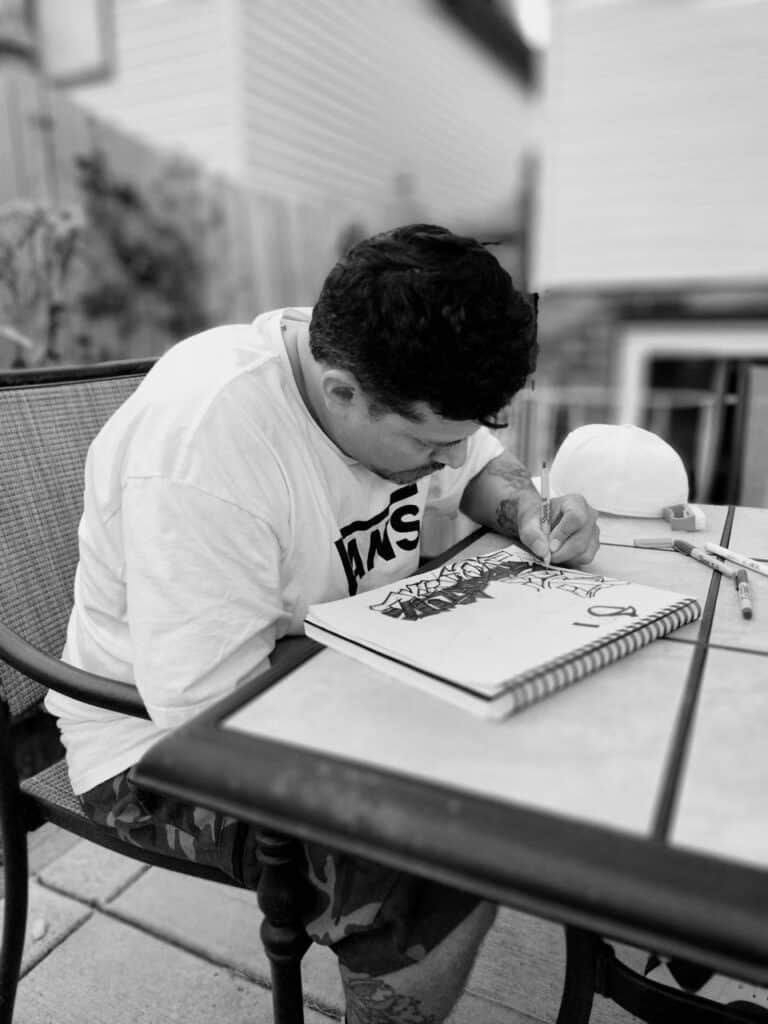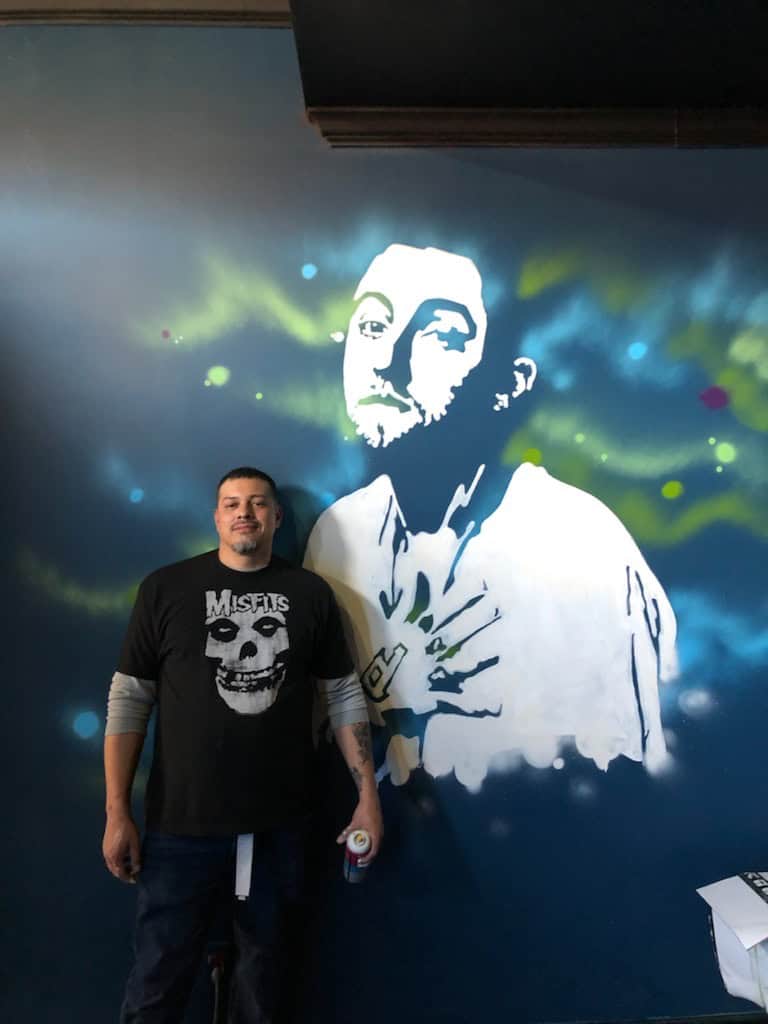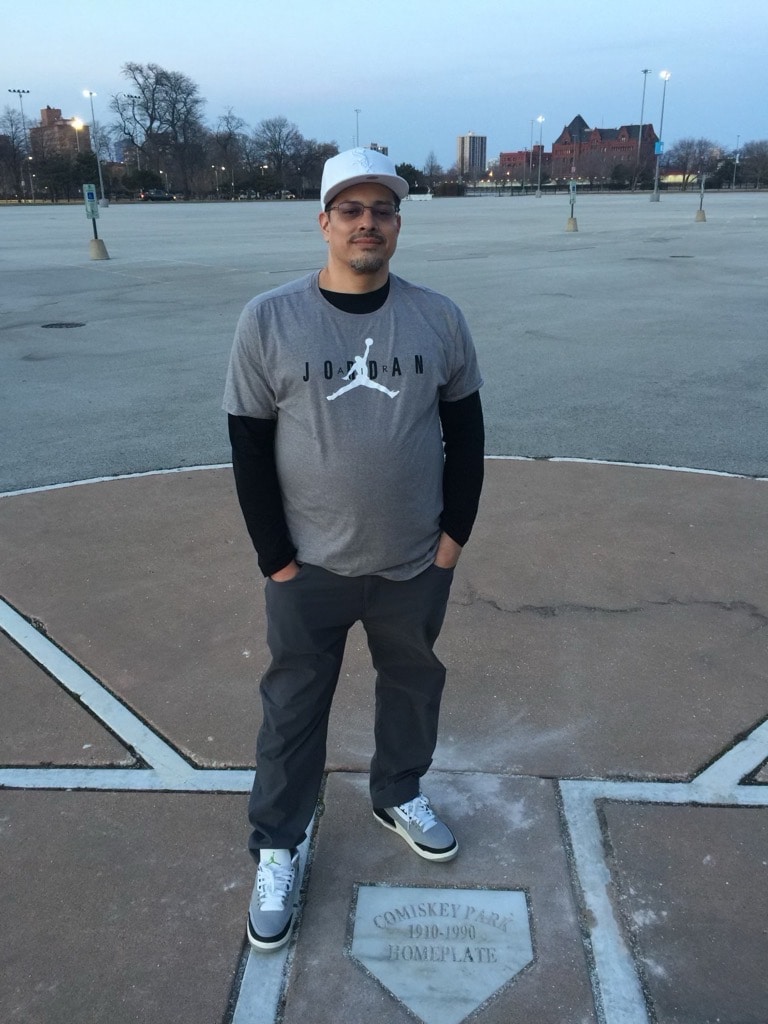Nick Morfin
Nick Morfin spent 25 years in prison for a crime he did not commit. Since his exoneration and release, he has started a career in construction and is helping change Chicago’s skyline.
“Twenty five years is a long time to wait. … It is not hard to just sit in a prison cell; it is hard to get used to the environment and to mentally adjust.” — Nick Morfin
At age 17, Nick Morfin was wrongfully convicted of double homicide and sentenced to life without parole. After spending 25 years in prison, he was exonerated and released. Today, he is rising above the trauma and negative effects of unjust conviction and imprisonment to work toward his professional and personal development goals, and to empower youth in his community.
The Heavy Weight of Wrongful Incarceration
Growing up on the South Side of Chicago, Nick was surrounded by his loved ones. He describes his childhood as “normal,” with his whole family of grandparents, uncles, and cousins living “within three blocks” of each other. His grandmother, the pillar of this tightly knit community, watched and nurtured all her children and grandchildren in the family from infancy to independence. He earned good grades and had no major issues in school. “Around 16, I got into a little bit of trouble, but nothing serious,” he says. In fact, Nick was set to graduate high school early until his life took a drastic turn. At age 17, police unjustly arrested him for double homicide. “Friends of mine did something, and I ended up getting locked up for it,” he remarks bitterly. After years of judicial procedures, Nick received a life without parole sentence, the mandatory minimum for a child convicted of double murder at that time and started serving his sentence in Pontiac Correctional Center when he was just 19 years old. After a few months, the state transferred him to Stateville Correctional Center, where he spent approximately two decades.
For Nick, the first years behind bars were the most difficult. “As a young kid in a grown man’s prison, I was just trying to get used to the environment, to the structure; I was just trying to maneuver and find my way,” he says. He emphasizes that at the beginning he had no artistic outlet. “I didn’t know how to paint, I didn’t know how to draw. For a few years I didn’t even have a hobby. I developed my artistic outlet later.” Moreover, given the length of his sentence, he did not have access to education as facilities reserved courses for people with release dates. “I couldn’t get my GED. I couldn’t do a lot at the time,” he says. During those dark years, Nick’s mindset reflected his frustration at the prospect of dying in prison. “My whole outlook was, ‘I have a natural life sentence. What are they going to do to me?’” he recalls. However, rather than engaging in destructive behavior, he channeled his energy toward productive activities, especially his job as a cook. He also learned how to paint, and this became one of the coping strategies that helped him manage the strain of wrongful incarceration.
Fighting For Freedom
Throughout his time behind bars, Nick constantly thought about his innocence and never stopped fighting for his freedom. “I did what I could to assist my lawyers,” he says. The best way to help was to make sure he could provide any kind of information they needed from him. “I used to buy notebooks and write down the events of the day, just so I won’t forget them over time, because I wanted to be ready for my court appearances, even when I did not have a specific date,” Nick reveals. The more he invested his time and efforts into the fight, the more he became cognizant of the law — and more eager to act. With Marshan Allen, who also received a life sentence as a child, he spent “hours talking and trying to figure out a game plan to attack, with the hopes that things were going to change for juveniles.”
While fighting for freedom, working, and painting kept him busy, family remained Nick’s primary source of comfort and support, giving him the strength to overcome the pains and challenges of life behind prison walls. He acknowledges that he belongs to a small, privileged group of people who received all the support — emotional, financial, and legal — they needed while incarcerated. “I am fortunate! I come from a good family. They never doubted me; they were hugely supportive,” he says. “I did not want for anything, and that’s a big thing. Often in prison, when you don’t have support, you find yourself in circumstances you don’t want to be in.” He concludes, “I never missed the opportunity to go to the store. I never missed a visit. I have a big family, and everybody pitched in to support me, and I am thankful for them.”
Nick is also grateful for the unwavering support of his friends. “A lot of people with whom I grew up and went to school were hugely supportive. One of my friends from kindergarten was pretty consistent. For a long time, he visited me every week,” Nick remembers. For Nick, this warming presence was soothing, especially in a “horrible” prison environment.
No Amount of Money or Apologies Can Return Lost Years
Nick’s fight to prove his innocence was successful thanks to not only his perseverance, but also to the legal assistance he received. “From day one, every lawyer I had for appeal continuously attacked the mandatory life sentence.” He will never forget the passion of the public defender who worked with him to get his conviction overturned. In his words, “she was passionate about the (issue of) juveniles’ culpability, the kind of passion you won’t easily find in other lawyers because most of them care only about money.”
In 2017, pursuant to Miller v. Alabama and subsequent decisions, his life sentence was vacated and he was resentenced to 52 years. In 2021, prosecutors dismissed all charges against him and he was released. In 2022, he obtained an exoneration certificate, the ultimate victory after more than two decades maintaining his innocence.
Nick’s homecoming did not alleviate the psychological scars of his wrongful murder conviction. Upon his return, he realized most of his challenges were related to his emotions and his relationships, so he decided to prioritize healing. “When I came home, I did a lot of therapy, and I became aware of some of the things I was not previously aware of,” he shares. Therapy was an essential cornerstone for Nick’s successful reentry into society, helping him confront and navigate new psychological patterns and not feel like an “emotional burden” to his loved ones. Nick recalls having to constantly wear a mask of invulnerability, having heeded the advice he was given during his early years in prison: “There is no emotion here; you don’t get angry because people feed off of that,” and, “Don’t boast about the things you have because other people may not have them, and someone might get angry.” In comparison, outside of prison, “people want you to share your feelings; they want you to talk. When you don’t, they think you are angry; they don’t understand that you are just conditioned … that you’ve been conditioned,” he observes.
Youth Advocacy
While the trauma of a lengthy and unjust incarceration has not completely disappeared, and may never will, Nick is confident in the emotional stability he has attained in the years following his release and is ready to assist others. He is particularly interested in helping youth at risk of incarceration by showing them how new skill sets can create a different path forward. “If I can teach them how to make money with their hands, they will be a gold mine because people will invest in them.” His experience is also a testament to the vital role counseling can play in a young person’s decision making. “I tell them, ‘If you keep doing (the wrong thing), you are going to face adult consequences that you are not mentally prepared for, because it’s not hard to just sit in the prison cell; it’s hard to mentally adjust and retain yourself. This is your own world, so whatever you want to see it become, make it happen!’” He adds, “Nobody told me that. Everybody just told me not to get drunk,” which was not very useful.
Nick equally advocates for safe spaces where youth can escape violence. “How does society expect youth to focus and succeed when they don’t feel safe at home and/or in school?” he asks. In his opinion, instability at home, as well as lack of consideration and empathy in school, is particularly concerning because it usually leads to kids’ isolation or dismissal in the short term, and to incarceration in the long term. He thinks safe environments can counter “chaotic family dynamics” and disrupt the “school-prison pipeline” that have been destroying youth and their communities.
When talking about community, Nick cannot help but have a thought for those who supported him during his darkest moments. And although he still bears the scars of a wrongful conviction and incarceration, he is very much aware of and thankful for his loved ones. “I have a good family support system and quite a few good friends. I am lucky I have been able to lean on them since I came home,” he says.
Getting and maintaining a job in the construction industry has allowed him to finally give back to his relatives, especially his mother. “I don’t care whether or not she needs it, I can give her my whole check because I know I was able to call her in a pinch for anything, I mean anything, and it was done. So I’m happy to be able to reciprocate, to give back to her,” he says.
Financial stability has also contributed to Nick’s emotional balance, and overall well-being. “I have found something that keeps my interests. I like being a ground up carpenter. I like getting dirty every day working with my hands. I am able to see everything that I built, and I am literally changing the face of the skyline of the city.”
More from the “More Than a Conviction” Project
Up Next
Read the story of another returning citizen who was sentenced to juvenile life without parole and is now free
Read moreOther Stories
Discover the impacts of juvenile life without parole sentences in Illinois from additional perspectives
Learn moreReport
Read the Restore Justice report on juvenile life without parole and extreme sentencing in Illinois
Read the Report



